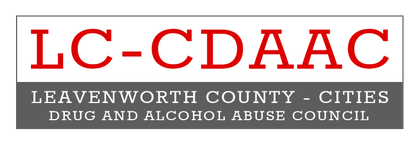Ideas for Grant Activities
Year-round programs for children, which receive priority consideration for grant awards, use weekly activities and events, such as field trips, games, puzzles, contests, posters, and group discussions to reinforce ways to avoid drug and alcohol abuse.
Such programs may also consider augmenting these interactive components by:
Obtaining and distributing informational brochures on preventing drug and alcohol abuse, strategies for good decision making, legal liabilities associated with driving while intoxicated by alcoholic beverages (driving under the influence laws), and statistics on abuse in Leavenworth County. Printing up wallet-sized cards and handouts with resources to prevent DUIs.
Examples include local taxi numbers, free Uber code, Sober Driver’s Pledge Card, and other printable prevention tools. To learn more about community and county grants write to us at P.O. Box 354 in Lansing, KS 66043.
Grant awardees for single events, such as post-graduation parties, have used local community centers, gymnasiums, activity centers, and gaming centers as venues. Any venue proposed as a location for an event must be alcohol- and drug-free at the time the event/program is held. Activities typically involve an overnight lock-in with plenty of games, inflatables, food, and videos to entertain the participants. These programs, which are intended to provide a safe drug-and-alcohol-free environment for participants, must include a prevention or educational activity, such as:Invite educational speakers from Project Leadership, Education, and Development (LEAD), Drug Abuse Resistance Education (DARE), aka Keepin’ it Real or other one-on-one speakers.
- Set up a DUI demonstration with goggles that simulate the effects of alcohol impairment, including reduced alertness, slowed reaction time, confusion, visual distortion, poor judgment and decision making, and lack of muscular coordination.
- These goggles may be used in conjunction with a field sobriety tape where participants must walk a straight line, or with a popular video game, where participants compare their performance with and without the goggles.
- Some grant recipients have designed tasks for students to complete, such as catching a ball, navigating a scooter obstacle course, or setting up and taking down a pyramid of cups.
- Similarly, goggles that simulate the effects of drug impairment, including disorientation, vertigo, lack of concentration, image distortion, and memory problems, may be used in conjunction with simple memory or matching games. Such goggles are widely available for less than $100.
- Completion of these activities may be rewarded with token prizes for participants. Conduct community awareness programs with events such as staged accident scenes or memorials to educate participants on the impacts of drunk driving.
